Rotating your proxy IP can be a very helpful function during your scraping or parsing missions on the Web. However, in some select cases, you may need to use proxies with unchanging IP sessions instead of a new IP on each connection. This is exactly when you will require the functionality of sticky proxies.
In this article we will take a closer look at cases when you may need to consider deploying sticky vs rotating proxies. You will learn about the main difference between the two types of proxies and the technology behind them. We will close by the information related to PrivateProxy’s standing on the subject and our best offers to our clients.
Defining Sticky Session
A sticky port proxy (or simply a sticky proxy) is a server that keeps the same IP for a duration of time set for this session, i.e. several seconds or minutes. The IP changes when this interval lapses. Such a process is referred to as a sticky session.
Some people confuse proxies with sticky sessions and static proxies. In the case of static proxies – you can have a valid IP for the duration of several months. This is possible because ISP and dedicated datacenter proxies can secure this address for your missions this long. With residential proxies you need actual physical users to be online to use their IPs. This sets the limit for the sticky session duration. So, with some proxy providers your IP rotation will be compulsory after a certain time, even if they try to guarantee you long proxy sessions.
Defining Rotating Session
A rotating proxy is a server that changes its IP for each session (or request). This helps the users hide the fact that scraping is performed by a single device. You can have thousands of requests route to the same website over the period of your operation, and each of the requests will be forwarded from a different IP selected from the pool.
This kind of scenario ensures random intervals of IP rotations and is useful especially for overriding anti-bot systems of search engines and e-commerce sites for collecting valuable data related to marketing. With constantly changing IPs, your proxy has less chances of being detected by the anti-scraping systems.
Rotating vs Sticky Proxies: How Does It Work
Depending on your proxy provider’s profile settings, your IP rotation mechanism can be controlled via different ways. Some providers differentiate between sticky and rotating proxies, so that when you use rotating proxies you get one address that you put into your script or bot to ensure automatic rotations. And with sticky proxies your gateway address remains the same and the port number (or session ID) keeps changing.
You can also use software apps like SwitchyOmega to emulate sticky or rotating proxies from the browser. Follow this link to learn more on how to use Proxy SwitchyOmega app.
We at PrivateProxy decided to provide our users with a more convenient mechanism. With us, you can set the rotation time of your IPs, thus converting your rotating proxies into proxies with sticky sessions. If you set the amount of time of your rotation to zero, you end up with a standard rotating proxy with IPs changing on each connection. This elegant solution becomes available to you right from your proxy dashboard, so you do not need to manually adjust your IP or port settings.
Use Cases of Rotating vs Sticky Proxies
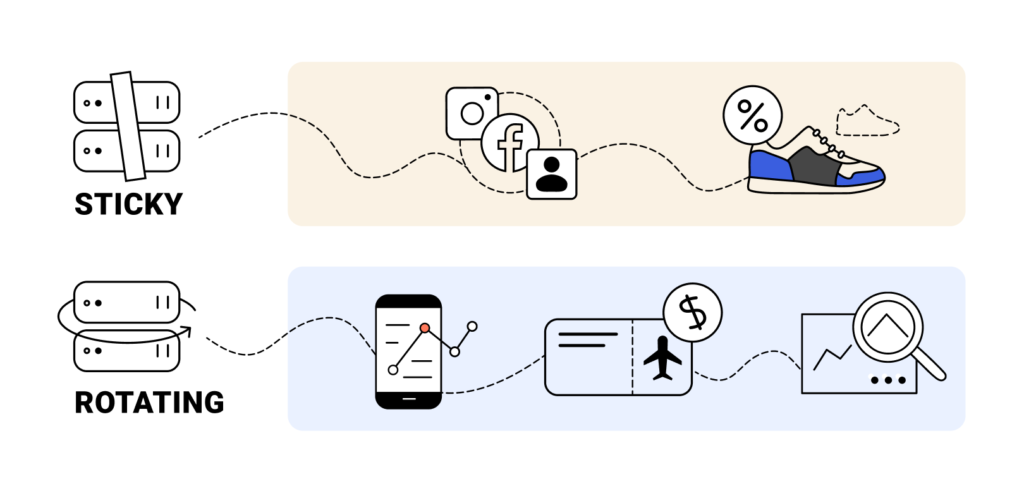
In this section we will describe the main difference between sticky and rotating proxies from the perspective of use of such IPs.
Rotating Proxy Use Cases
Let’s start with rotating proxies. Just like we mentioned above, the major use cases of rotating proxies revolve around overriding any sophisticated anti-bot systems that a website may feature. So, unless you change your IP for each of the requests to such a website, you may raise a red flag or get banned entirely from the site. Your private proxy rotations are vital in this case for mimicking the behavior of a multiple number of regular users from various IPs.
It is clear that rotating datacenter proxy or its residential alternative becomes your best choice for data collection and scraping missions on various types of sites that contain publicly available marketing information.
E-commerce data extraction. If you have an e-store or a marketplace, at a certain point you will need to start collecting data on your competition to get an edge in the market. And, in the process of info harvesting you want to remain anonymous and unnoticed. With rotating proxies you can do just that. With different IPs on each data request you can collect enough info on pricing, special deals and much more from your competitors in some given geographical regions. And without alerting the in-house anti-scraping systems.
Data collection on airfares. If you are running an airfare aggregator or if you want to get the best deals from some airlines, you can get it by using IPs from different locations provided by your rotating proxies. It is no secret that the dynamic pricing systems of some airlines depend on the physical geo location of request originators. Here, you can rotate your IP to get the best deal possible.
Search engine optimization monitoring. With SEO becoming a priority for most businesses, you can get ahead of the crowd by monitoring the situation with keywords and your position on the SERP (Search Engine Results Page). If you automatically change your IP for multiple requests from various locations, you may reveal information to improve your position on the results pages of your potential customers.
Sticky Proxy Use Cases
In some cases you need to keep your IP the same for an extended period of time. This normally happens when you need to fill out some online form or complete your checkout process. If your IP rotates during this stage, the info on the site will be reset and you might lose the previously entered data.
Proxies with sticky sessions are your ultimate tools for these sort of use cases. So, if you want to support multiple accounts on your social media or complete purchases of rare footwear during drops you might want to use sticky proxies instead of regular rotating ones.
Social media accounts. With sticky proxies you can easily manage several accounts from a single device. You can set up your timing in order to be able to enter the information you need for each particular account and re-login to the next one. When you work with social media, make sure you have daily access to your proxy provider. If you are going for some “disruptors” in the market, the chances are that you will be looking for a replacement like with 991.re where the customers rushed out to look for 991.re alternatives when the service collapsed after a range of hacker attacks.
Copping sneakers online. Sticky proxies are also great for buying rare sneakers on sites that require you to enter your credentials for each purchase you need to complete. With these site requirements you can set up your bot to be able to enter the info right before going to another IP for your next bid.
Of course, these are just some of the use case examples for sticky and rotating proxies. We would gladly guide you through the proxy selection process in order to provide you with the suitable proxy solution to fit your particular needs.
Also, it is possible to request a rotating proxies free trial from us by contacting our managers directly via the chat box below. It is the best way to find out how they would perform in your case.
Consider PrivateProxy as Your Proxy Provider
It has always been our passion to offer our customers an easy-to-use way to control and monitor their proxies. This is especially true about some of our sophisticated products like rotating proxies and sticky IPs. Our user’s dashboard makes it absolutely convenient to handle the rotation of proxies: you will be able to set time intervals for sticky sessions or zero them down for free random rotations.
And on top of the user interface technology, we offer round-the-clock tech support for all of our clients. You will never be left out in the dark. All your proxy related issues will be given high priorities and resolved in a matter of minutes. We understand that you want to feel comfortable with our proxies and we want you to be satisfied.
But don’t take our word for it! Let us know if you need a set of rotating proxies or sticky servers to try the quality of our proxies for yourself.
Frequently Asked Questions
Please read our Documentation if you have questions that are not listed below.
-
What is a sticky proxy?
A sticky proxy is a proxy server that keeps its IP while accessing a target site for a certain time interval. This interval is called a sticky session and can be defined by the proxy user.
-
Where to buy rotating and sticky proxies?
You can buy rotating and sticky proxies from proxy providers with contemporary proxy pools. Before you buy any of these proxies, make sure you are satisfied with the user interface for controlling and monitoring the proxy performance.
-
Which of the two proxies to pick: sticky or rotating proxies?
Depending on the requirements of your online mission, you can select between a rotating proxy and a sticky one. With a rotating proxy you will have a new IP assigned to your connection each time you end one. This is helpful for extensive scraping sessions that you don’t want to get inhibited by any anti-bot systems. Sticky proxies will be your clear choice for scenarios where you will need some time on the same IP to fill out an online form or to complete a checkout.
-
Is it safe to buy rotating and sicky proxies from one provider?
While it is certainly safe to buy all of your proxies from the same provider, we want to advise you to build up a long-term successful relationship with such a provider. Once you feel completely confident about your cooperation, you can move all your proxy business to them.
Top 5 posts
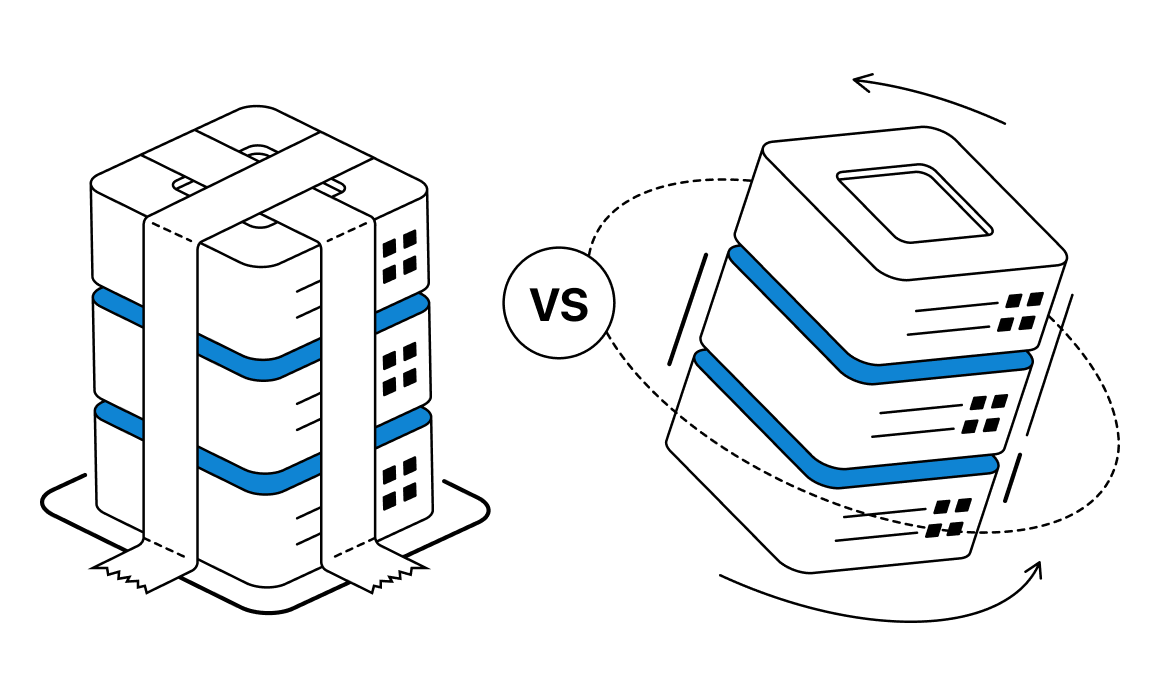

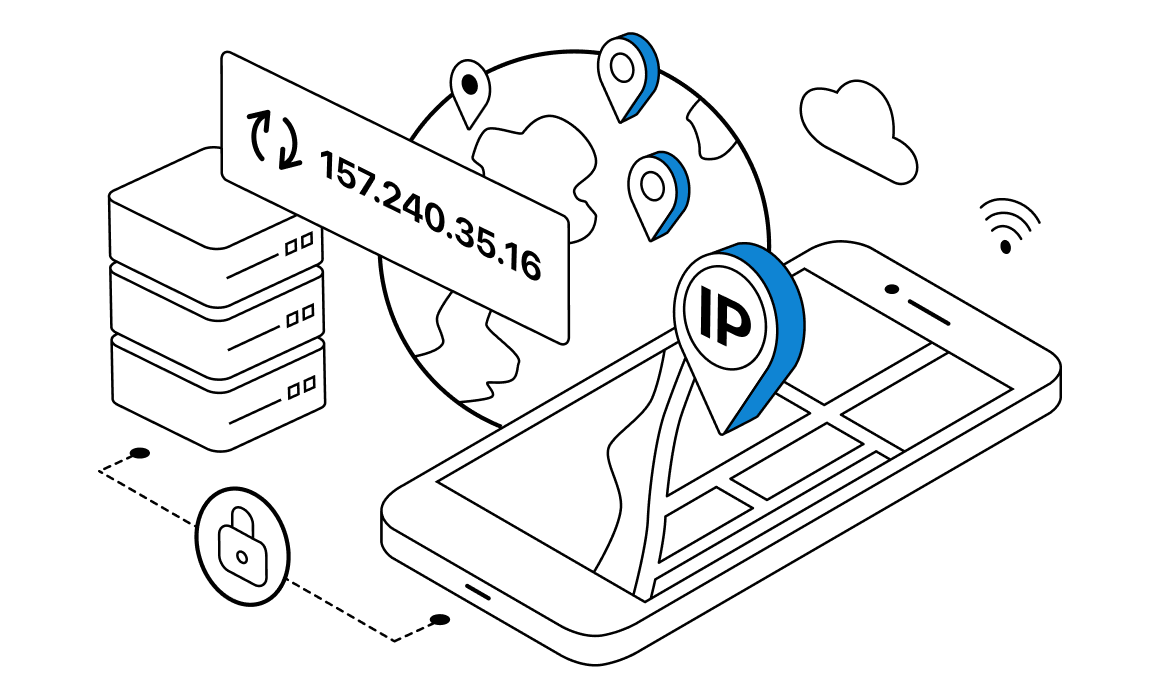
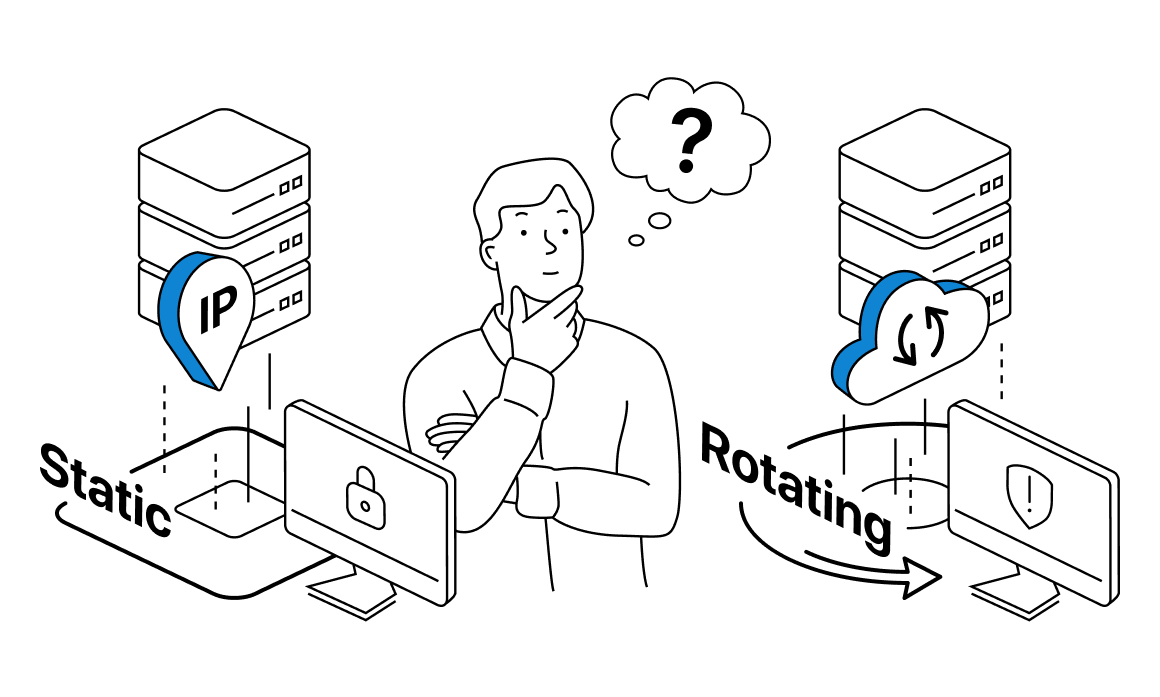

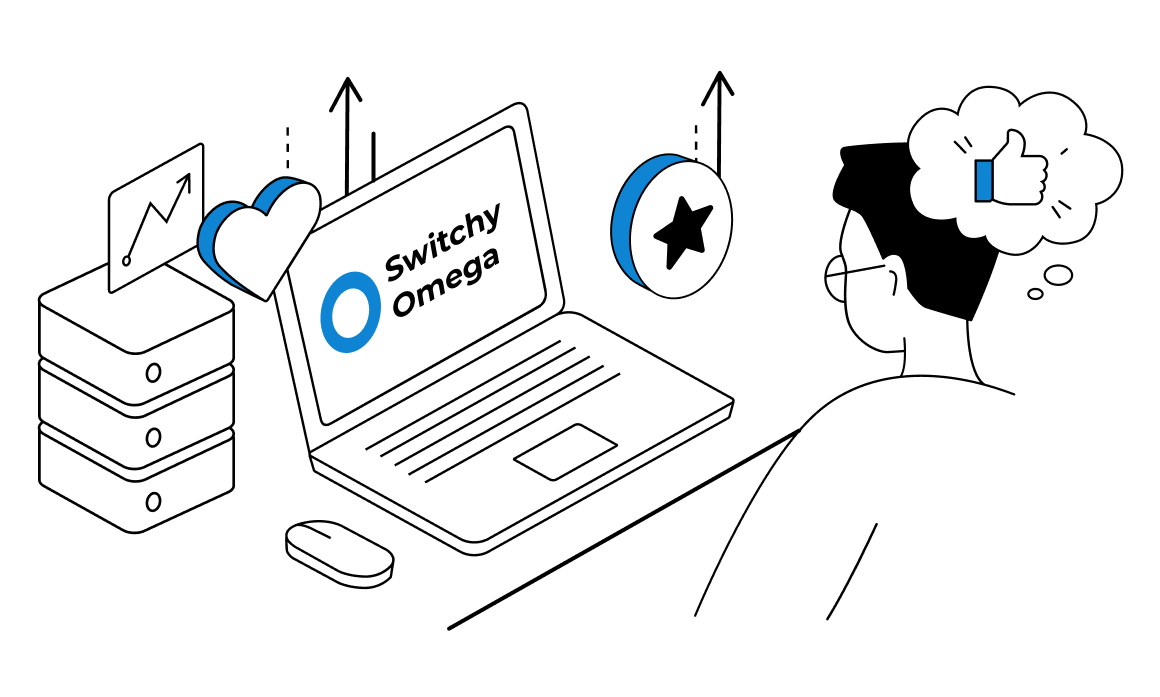
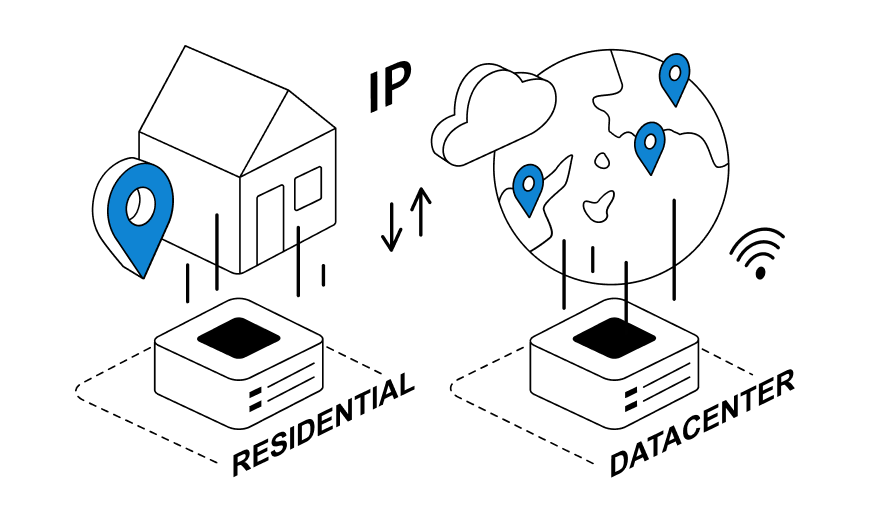
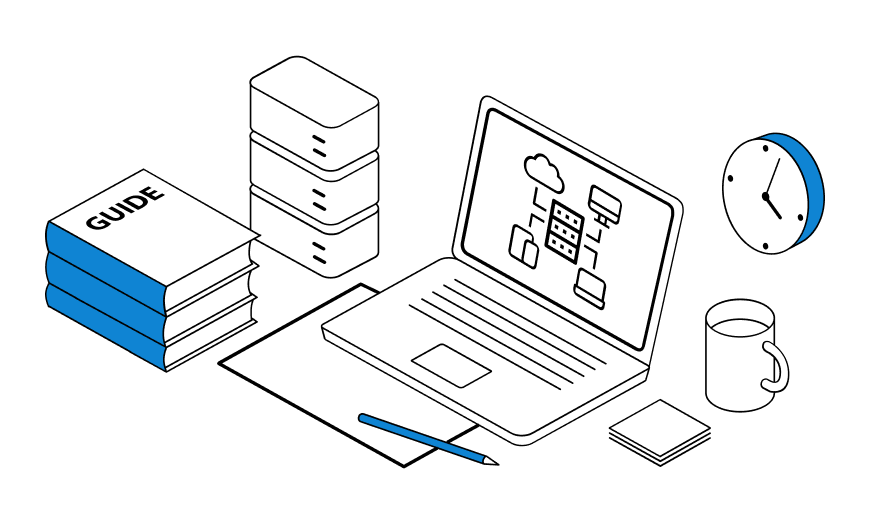

Whenever you come across the subject of using proxies for online missions involving web scraping, the concept of IP address rotation comes into play.
But, please, do not get alarmed when you hear about scraping. It is not only a practice some black hackers would use to collect data. It is also a very handy tool for gathering information on your current market standings for making strategic decisions on your business growth.
In this article we will start by talking about how to rotate proxies and IP addresses from the perspective of your online activities.